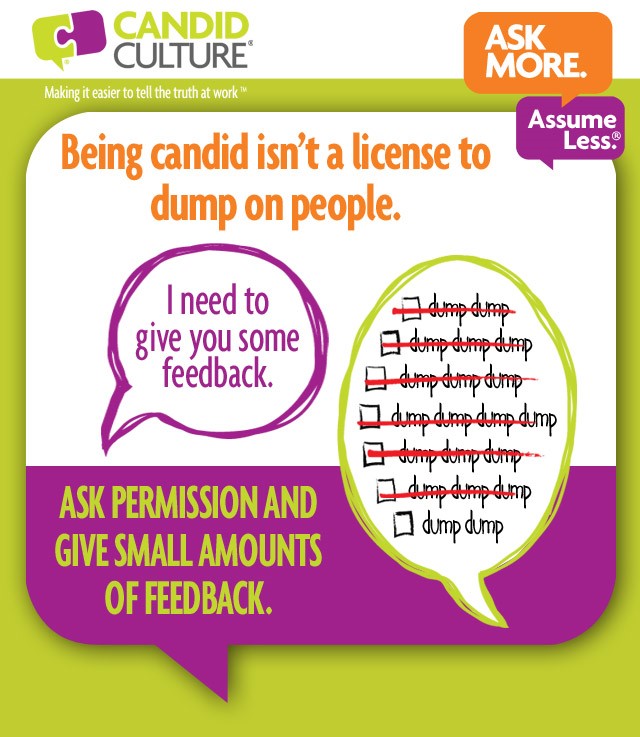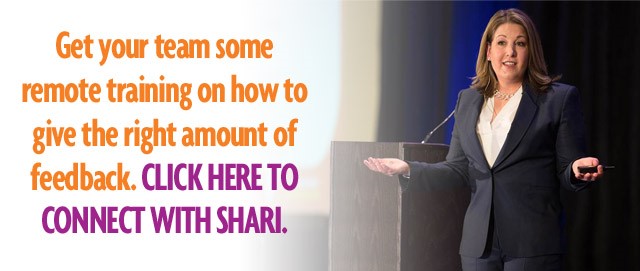People leave feedback training armed with new skills and
they unfortunately sometimes use those skills as a weapon. It goes something
like this, “I need to have a candid conversation with you.” And then the person
proceeds to dump, dump, dump. This couldn’t be more wrong, wrong, wrong.
When you give someone negative feedback you are essentially telling him that he did something wrong. And who likes to be wrong? The ego gets bruised and people often start to question themselves. This normal reaction doesn’t mean you shouldn’t give feedback, you just need to do it judiciously.

Ask yourself these four questions when deciding whether
or not to give someone feedback:
- Do I have the relationship to provide feedback?
Does the recipient trust me and my motives? - Do I have permission to give feedback? If the recipient
doesn’t work for you, you need permission to give feedback. - Is this something the person can do something about?
If it’s not a change the recipient can make, keep your thoughts to yourself. - Is the feedback helpful? Ultimately the purpose
of all feedback is to be helpful.
Let’s say you’re on the receiving end of too much feedback.
What should you do? It’s ok to say “no
thank you” to feedback. Here’s what you could say:
“Thank you for taking the time to bring this to my
attention. I really appreciate it. You’ve given me a lot of feedback today. I’d
like something to focus on that I can impact right now. What’s the most
important thing I should do?” You’ve validated the other person and
demonstrated openness and interest. You’ve also set some boundaries and
expectations of what you will and won’t do.
“Thank you for taking the time to share your requests about…
We won’t be making any changes to that and here’s why.” It’s ok not to act on
all feedback, simply tell people why you won’t.
“I appreciate your concern. I’m not looking for feedback on
that right now.” Can you say that to someone? Yes. Should you? Sometimes. To
your boss – no. To someone who offers unsolicited advice that’s outside of
their lane, yes. They’ll get the message.
People can only act on and digest small amounts of feedback
at a time. Be judicious and assess your motives. The purpose of feedback is to
be helpful, when the feedback is requested and when you have the relationship
to give it.
If you receive too much feedback or unsolicited feedback, it’s
ok to decline. You’re not the 7-11, aka you’re not always open.

The post Giving Feedback – Less is More appeared first on Shari Harley.

















